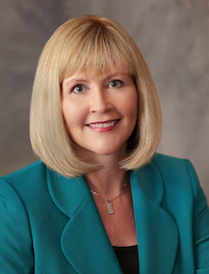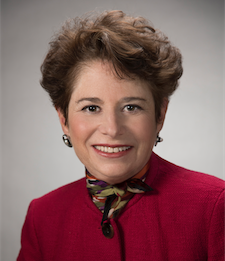Diabetes is a self-managed condition. That means the person with diabetes must take care of it each and every day --- and know how to do so.
There's an infinite amount of things they must know including how foods impact blood sugar, blood pressure and kidney health. The benefits of exercise and when it's dangerous to exercise. The importance of taking your medicine, or not. What the blood sugar numbers on their glucose meter mean and what to do with that information. How to prevent and recover from devastating low blood sugar and prevent frequent high blood sugars.
Knowing how to manage one's diabetes can be the difference between living a fairly normal life or suffering from debilitating diabetes complications.
Complications can be devastating for both the person with diabetes and his or her family. They include losing your vision, having your foot or leg amputated, feeling constant pain, tingling or absolutely nothing in your feet and dying prematurely from heart disease, as two out of three people do with type 2 diabetes.
Nearly 400 million people in the world have diabetes and half don't know it. 86 million people in the U.S. have prediabetes, 7 million more than a few years ago. Every 6 seconds a person dies from diabetes.
Since this education, called diabetes self-management education (DSME), is essential to one's quality of life with diabetes, why isn't it one of the first things healthcare providers make sure patients get? A study reveals that only an estimated 6.8 percent of people with newly diagnosed type 2 diabetes received DSME during their first year with diabetes.
What's even more dismaying is that the study participants had private health coverage that would cover the cost of their initial self-management education.
Equally hard to believe is the disclosure at last year's American Diabetes Association (ADA) conference. Many providers don't even know what diabetes educators -- health care professionals specifically trained to provide this education -- do!
The final fact that leaves my head spinning is we know that diabetes education reduces hospital visits, re-admissions, complications -- and costs.
To better understand the state of, and hopes for, diabetes self-management education, I spoke to two passionate, concerned and driven women -- the 2015 President of the American Association of Diabetes Educators (AADE), Deborah Greenwood, PhD, RN, BC-ADM, CDE and the 2016 President Hope Warshaw, MMSc, RD, CDE, BC-ADM.
Riva Greenberg: Where are we today in recognizing the value of diabetes self-management education and what's being done to make it more available?
Deborah Greenwood: "A very positive and significant trend I've been seeing is an emphasis on diabetes prevention and wellness. As you know many millions of people in the U.S have prediabetes so we must increase awareness, provide education, preventive care and behavior change support to reduce the progression of the disease.
Also, many new technology-enabled models of care including telehealth, mobile health, and mobile prescription therapy are helping us provide DSME to more underserved and remote populations.
RG: What do you see as the primary goal for the AADE this year?
DG: As a professional member organization, the AADE works to encourage diabetes educators into the field, advocate for educators by regularly communicating with the primary care provider community and support legislation for reimbursement of diabetes education.
As an example of AADE's influence, Medicare reimburses for DSME within an ADA recognized or AADE accredited program. But this does not recognize diabetes educators as qualified providers of DSME. Right now we're advocating a bill in Congress to include diabetes educators as providers as well as increase DSME access.
I'm also very excited about the AADE's new 2016-2018 strategic plan. The AADE board of directors has drafted a visionary plan to shape the future of the diabetes educator profession, while ensuring that people affected by diabetes are at the center of all we do.
What we need now, to secure diabetes self-management education for the tens of millions of people with diabetes, is to help those who run hospitals, insurance companies and clinics see that DSME not only improves people's health but will also benefit them with significant cost savings."
RG: What do you think of the low incidence of people being referred to diabetes educators?
Hope Warshaw: "The 6.8 percent statistic, a case in point from one study, is evidence that most people with type 2 diabetes, most of whom see a primary care provider, are not getting referred for diabetes self-management education. Even though for many people with a private health plan or Medicare Part B this is a covered benefit.
As my colleague, Marti Funnell, RN, CDE, said, 6.8 percent is a good A1C level, but it's unacceptable as a percent for people who receive diabetes education.
Unfortunately, there continues to be limited understanding among providers of the critical junctures in one's life with diabetes when they should be referred for DSME.
At the 2015 American Diabetes Association conference, a joint statement was presented by the American Diabetes Association, the AADE and the Academy of Nutrition and Dietetics to stress the four junctures when people should be referred for DSME. At diagnosis, annually, when complications arise and when transitions occur in care.
RG: How will the profession keep up with the millions more people getting diabetes each year?
HW: We undoubtedly need to attract new healthcare providers to the profession of diabetes education and AADE. This is part of our new strategic plan efforts, to further develop this specialty in academic institutions.
In addition, diabetes educators are helping to train and support individuals who can be considered diabetes paraprofessionals, such as community health workers, peer supporters and promotoras. These are lay people in the Hispanic/Latino community who receive specialized training to provide basic diabetes education and even more importantly, support.
I also believe people with diabetes can make excellent peer supporters. If anyone is interested, I'd urge them to talk with their diabetes educator or other educators they know to see how they can help extend the services of diabetes educators.
I would also encourage every diabetes educator and person with diabetes to go online, see what's happening and get involved with the Diabetes Online Community (DOC). We have a resource page that can serve as a starter to learn, connect and engage with the DOC.
This is an amazing group of people, like yourself, who have diabetes and are sharing their knowledge and experiences and supporting others. For diabetes educators there's rich insight here into the experiences of people with diabetes and their caregivers.
RG: What can we be hopeful about for people who live with diabetes and need education?
HW: That through blogs like this one more people will know about and get referred by their provider for DSME.
AADE's new strategic plan that Deborah mentioned, studied the landscape in which diabetes educators work. We considered the myriad of changes occurring in our rapidly changing healthcare environment, including device and communication technologies, increased awareness of the psychosocial aspects of diabetes and other factors.
It positions AADE to help diabetes educators better meet the current demand, the demands of the millions of people being diagnosed with diabetes and the aging population of people with diabetes.
Bottom line, as Deborah said, the entities that pay for the delivery of healthcare must recognize the cost savings of DSME. And that diabetes education is not just what takes place when a patient sees an educator for a prescribed visit.
Diabetes educators work in the inpatient areas of hospitals on glycemic control protocols, transitioning people back to their insulin pump after surgery, getting people started on insulin, decreasing hospital readmissions, ensuring patient safety and much more.
We work in food banks, in Federally Qualified Health Centers and in supermarkets and pharmacies delivering education. We provide telehealth services, provide type 2 diabetes prevention programs, operate our own private practices, work for device companies. I could go on and on.
And, yes, we are working as hard as we can to get that message out to ensure that diabetes educators are utilized and respected and that more and more people will have the education they need to live long and healthy lives with diabetes."
I believe diabetes educators are one of the most important, and undervalued, professionals in our healthcare system. I am constantly meeting new educators through my work and my peer-mentoring, and have the utmost respect for them and the hurdles they're up against.
It's time to ensure that these professionals are recognized and utilized. And that every person with diabetes gets the self-management training essential to live a healthy, full and productive life with diabetes.
Photo use granted by the American Association of Diabetes Educators.

Riva is the recipient of the 2015 IDF Award for education and advocacy. She has written three books, Diabetes Dos & How-Tos, 50 Diabetes Myths That Can Ruin Your Life and the 50 Diabetes Truths That Can Save It and The ABCs Of Loving Yourself With Diabetes. Riva speaks to patients and health care providers about flourishing with diabetes. Visit her websites DiabetesStories.com and DiabetesbyDesign.com.

